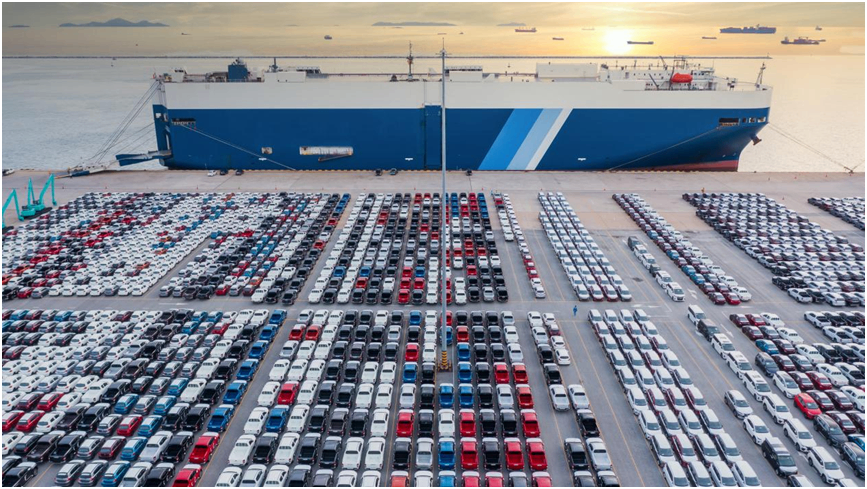U.S. President Donald Trump signed an executive order at the White House on March 26, imposing a 25% car tariff and certain auto parts, effective April 3. The move marks a significant escalation of the trade war initiated by the Trump administration, according to a report by the U.K.'s Financial Times.
Image Source:699pic.com
Which Vehicles Are Affected by the New Tariff?
Under the White House document released that day, Trump invoked Section 232 of the 1962 Trade Expansion Act to impose the 25% tariff, citing "national security" as the justification. The tariff applies to imported passenger vehicles (sedans, SUVs, etc.), light trucks, and critical auto parts (engines, transmissions, etc.), with the possibility of expansion to other components if necessary.
The document also states that under the U.S.-Mexico-Canada Agreement (USMCA), importers can certify the U.S.-origin portion of their vehicles. A mechanism will ensure the 25% tariff only applies to non-U.S.-produced parts. A U.S. official told American media that if a car imported from Mexico contains 50% U.S.-made parts and 50% foreign parts, the tariff rate would be halved to 12.5%.
Currently, the U.S. imposes a 2.5% tariff on most imported cars and a 25% tariff on light trucks, while vehicles meeting USMCA rules are exempt. The new 25% tariff is an additional levy on top of existing rates.
S&P Global data shows that nearly half of new passenger cars sold in the U.S. in 2024 were assembled overseas. U.S. Census Bureau figures reveal that total imports of cars, parts, and engines reached a record $474.3 billion last year.
Trump claims the tariff will incentivize production shifts to the U.S., generate new revenue for the government, and help reduce national debt. However, economists warn it will raise car prices and harm consumers.
What Are the Implications of the Tariff?
Experts widely agree the U.S. auto industry will face a severe blow. As tariffs drive up prices, consumer demand is expected to drop, leading to potential layoffs in auto and parts companies. The measure will not only impact the U.S. economy directly but also reverberate through trading partners and the global economy.
Gary Hufbauer, a senior fellow at the Peterson Institute for International Economics and former Treasury official, called the tariff a "significant blow" to the auto sector. He warned higher costs would reduce demand, particularly amid weak consumer finances, leading to "massive layoffs" in U.S. auto and parts firms.
John Murphy, senior vice president for international policy at the U.S. Chamber of Commerce, said the imposition of a car tariff would harm, not help, the U.S. auto industry and endanger American jobs. "Beyond cars, the U.S. has already imposed tariffs on steel, aluminum, and goods from Canada and Mexico. With additional 'reciprocal tariffs' set for April 2, the cumulative burden on the auto sector is staggering."
Kenneth Kim, a senior economist at KPMG, projected new car prices could rise by thousands to over $10,000. U.S. consumers, already grappling with high inflation, would face fresh shocks from increased car costs.
The Financial Times quoted Bernstein analyst Daniel Roeska, noting that nearly half of cars sold in the U.S. are imported, and 60% of domestically assembled vehicles use foreign parts. A prolonged tariff (over 4–6 weeks) could severely disrupt the industry. Mexico, where 1 million jobs depend on auto manufacturing (4% of GDP), would also face economic shocks.
Hildegard Müller, president of Germany’s VDA auto industry association, warned the imposition of a car tariff would directly damage U.S. economic growth and global prosperity. "Escalating trade conflicts risk undermining global economic stability, jobs, and innovation."



